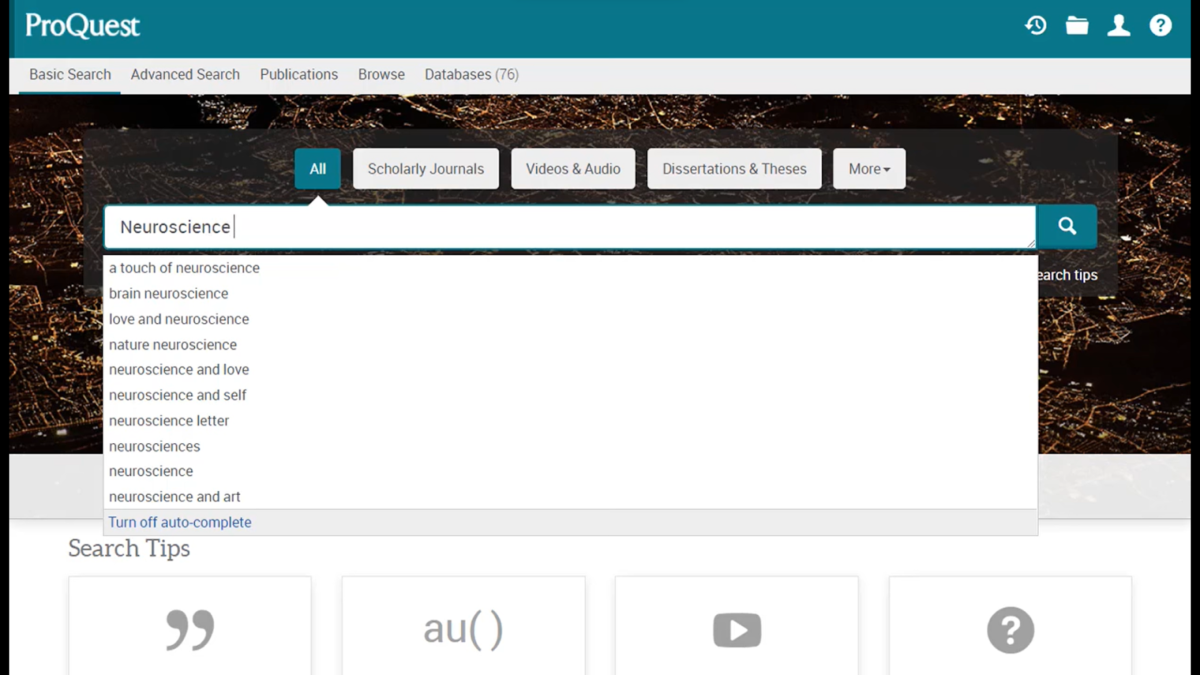Library Databases: A Comprehensive Overview
Library databases serve as online repositories of information systematically structured and accessible via a library’s website. They encompass a diverse array of materials, spanning articles from academic journals, magazines, newspapers, eBooks, and primary source documents.
These databases prove invaluable to researchers and students, granting entry to a vast trove of data beyond the reach of general search engines like Google. Often containing materials not freely accessible on the internet, they might necessitate subscriptions or special access rights.
Library databases are frequently categorized by subject, bolstered by search tools and filters to facilitate targeted information retrieval. Many also furnish citation utilities and supplementary resources, streamlining the proper referencing of sources.
In essence, library databases stand as indispensable assets for individuals in pursuit of trustworthy, high-caliber information, whether for research, academic pursuits, or professional advancement.
The Benefits of Library Databases
The utilization of library databases comes with a range of advantages:
- Access to Reliable Information: Library databases grant entry to a diverse array of trustworthy, high-quality data that might elude general search engines like Google. This encompasses articles from academic journals, magazines, newspapers, eBooks, and primary source materials;
- Streamlined Information Retrieval: Library databases are meticulously organized and indexed, simplifying the quest for specific information. They often incorporate search tools and filters to aid users in refining their search outcomes;
- Effortless Source Citation: Many library databases include citation tools and supplementary resources to assist users in accurately referencing their sources. This feature holds particular significance in academic research, where precise citation is pivotal to averting plagiarism;
- Exclusive Access: Numerous library databases offer access to content not readily accessible on the internet, often requiring subscriptions or special access privileges. By leveraging a library database, you can freely explore these materials through your library’s resources;
- Current and Accurate Information: Library databases undergo regular updates, ensuring the information they house remains up-to-date and reliable. This feature guarantees the currency and accuracy of the content they provide.
Illustrative Instances of Library Databases

Here are several instances showcasing the diversity of library databases:
| Database Name | Description | Target Audience |
|---|---|---|
| JSTOR | A digital library housing an extensive collection of academic journals, books, and primary source materials, with a focus on arts, humanities, and social sciences. | Researchers and students in arts, humanities, and social sciences. |
| ProQuest | Provides access to a diverse array of academic journals, magazines, newspapers, ebooks, and primary sources, serving researchers and students across fields like business, education, and sciences. | Researchers and students in business, education, and sciences. |
| EBSCOhost | A renowned platform offering a wide range of academic journals, magazines, newspapers, ebooks, and primary source materials, catering to researchers and students in areas such as nursing and education. | Researchers and students in nursing, education, and social sciences. |
| LexisNexis | Specializes in legal and business-related information, including case law, statutes, news articles, and legal documents, making it essential for professionals in the legal and business sectors. | Professionals and researchers in law and business fields. |
| ScienceDirect | A platform dedicated to the scientific and medical domains, granting access to an extensive collection of journals, books, and primary sources, benefiting researchers and students in science and medicine. | Researchers and students in the fields of science and medicine. |
Each library may provide access to distinct databases, so it’s advisable to consult your local library to ascertain the available resources.
What Types of Library Databases Exist?

Various types of library databases serve distinct purposes, including:
- Bibliographic Databases: These house records describing published works, such as books and articles, featuring details like titles, authors, publishers, and publication dates. They’re useful for locating specific works or gathering information about authors and publishers;
- Full-Text Databases: These hold complete texts of published works, encompassing articles, books, and other documents. They’re valuable for finding precise information and conducting in-depth research on specific subjects;
- Primary Source Databases: These store original documents like letters, photographs, and historical records, aiding researchers and students in exploring the history and culture of specific time periods or regions;
- Subject-Specific Databases: These databases focus on specific subjects or disciplines, like law, science, or medicine. Researchers and students engaged in particular fields of study often utilize them;
- Multidisciplinary Databases: These repositories encompass information from various subjects and disciplines, serving researchers and students tackling topics that span multiple fields;
- Reference Databases: These contain reference materials like dictionaries and encyclopedias, offering researchers and students background information and overviews of specific topics.
Conclusion
Library databases play a crucial role in modern research and education by providing access to a diverse range of high-quality information. From academic journals to primary sources, these databases empower researchers and students to delve into various subjects with accuracy and depth. By offering organized and indexed content, citation tools, and the convenience of online accessibility, library databases continue to be invaluable resources for those seeking reliable and comprehensive information for their scholarly pursuits.






Leave a Reply